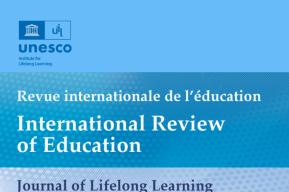News
Transforming MENtalities: decoding the real value of engaging men and boys for gender equality

The event, entitled "Transforming MENtalities: Effective Investments for Gender Equality in India," was hosted by the Embassy of Sweden in India on 21 June that brought together prominent philanthropic ventures, corporate foundations, civil society organizations, and aid agencies to explore strategic approaches in effectively involving men and boys to promote gender equality.
In his welcoming remarks, Mr Christian Kamill, Deputy Head of Mission at the Embassy of Sweden emphasized the need to invest in the natural and obvious aspects that contribute to gender inequality.
A long standing supported of gender equality, Sweden was the first country in the world to have a feminist foreign policy”, he remarked while reaffirming his commitment to the issue.
The event offered insights into the motivations and strategies behind donor support for initiatives that empower women and girls while reshaping harmful conceptions of masculinity and dismantling the adverse impacts of patriarchy on all genders.
In his address, Mr Shombi Sharp, UN Resident Coordinator in India highlighted why gender equality makes sound economic sense.
If you have too much of one type of thing, the marginal product or the additional value is very low as a man in an institution full of men, the additional value you are bringing is very low. Whereas the additional value of bringing in a woman is very high. So, gender equality from this perspective is simple economics.
The messages by the above speakers transitioned well into the panel discussion. With a considerable repertoire in decoding the real value of engaging men and boys for gender equality, the panellists delved into pivotal subjects, including fundraising for programs on engaging men and boys for gender equality, risk identification, implementation of mitigation measures, exploration of bilateral and multilateral aid opportunities, and provision of recommendations to address existing gaps in funding.
The panel discussion, skilfully moderated by Nalini V. Khurana from ICRW, featured distinguished voices such as Manjima Bhattacharjya from the American Jewish World Service (AJWS), Taveeshi Gupta from Equimundo, and Eunsong Kim from UNESCO New Delhi Office.
We haven’t yet cracked the right way to engage with men and boys and this is a challenge that requires a lot of investment and experiments.
The free-form exchange allowed all participants to actively contribute and foster transparent dialogue, with participants seizing the opportunity to interact and share their perspectives during the stimulating Q&A session.
Responding to some reflections from the participants on gender socialization, Taveeshi Gupta pulled out data from Equimundo’s IMAGES Study, thus presenting another compelling argument for active participation of men in gender equality initiatives in order to foster more socially supportive relationships.
Boys who witness violence against their mother by their father or a male caregiver are two and a half times are more likely to perpetrate violence as adults and boys who see their father engaging in their household activities and caregiving activities towards their children are more likely to act as caregivers.
The dialogue called attention to the importance of unlearning harmful stereotypes that can lead to gender-based violence and discrimination. Forming meaningful partnerships was identified as a force accelerator in this regard.
Since UNESCO works with a range of stakeholders – from grassroots organizations to high-level decision makers – across a scope of rights-based issues, we are uniquely positioned to identify and address the systemic barriers to gender equality.
UNESCO hence believes it is important to contextualize masculinities and unpack gender and intersectionality when building the case to engage men and boys. Under the leadership of UNESCO, the Transforming MENtalities Initiative aims to challenge prevailing gender norms and stereotypes through context-specific knowledge, policies, and actionable measures.
In close collaboration with ICRW, a strategic partnership has been established in India, envisioning the development of an analytical framework for gender-transformative programming based on successful case studies of engaging men and boys. The goal, therefore, is to create and open spaces for different social realities through policy and programmatic interventions so that people with varied gender identities can thrive in society.
For further information, contact:

Head of Social and Human Sciences Unit e.kim@unesco.org

Programme Associate a.sehgal@unesco.org








